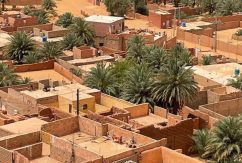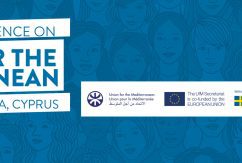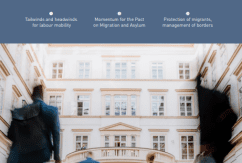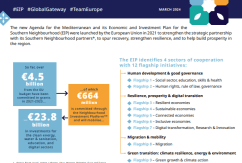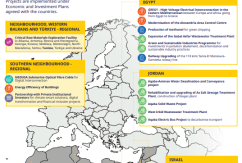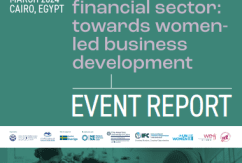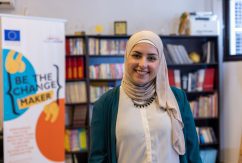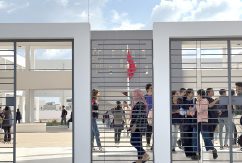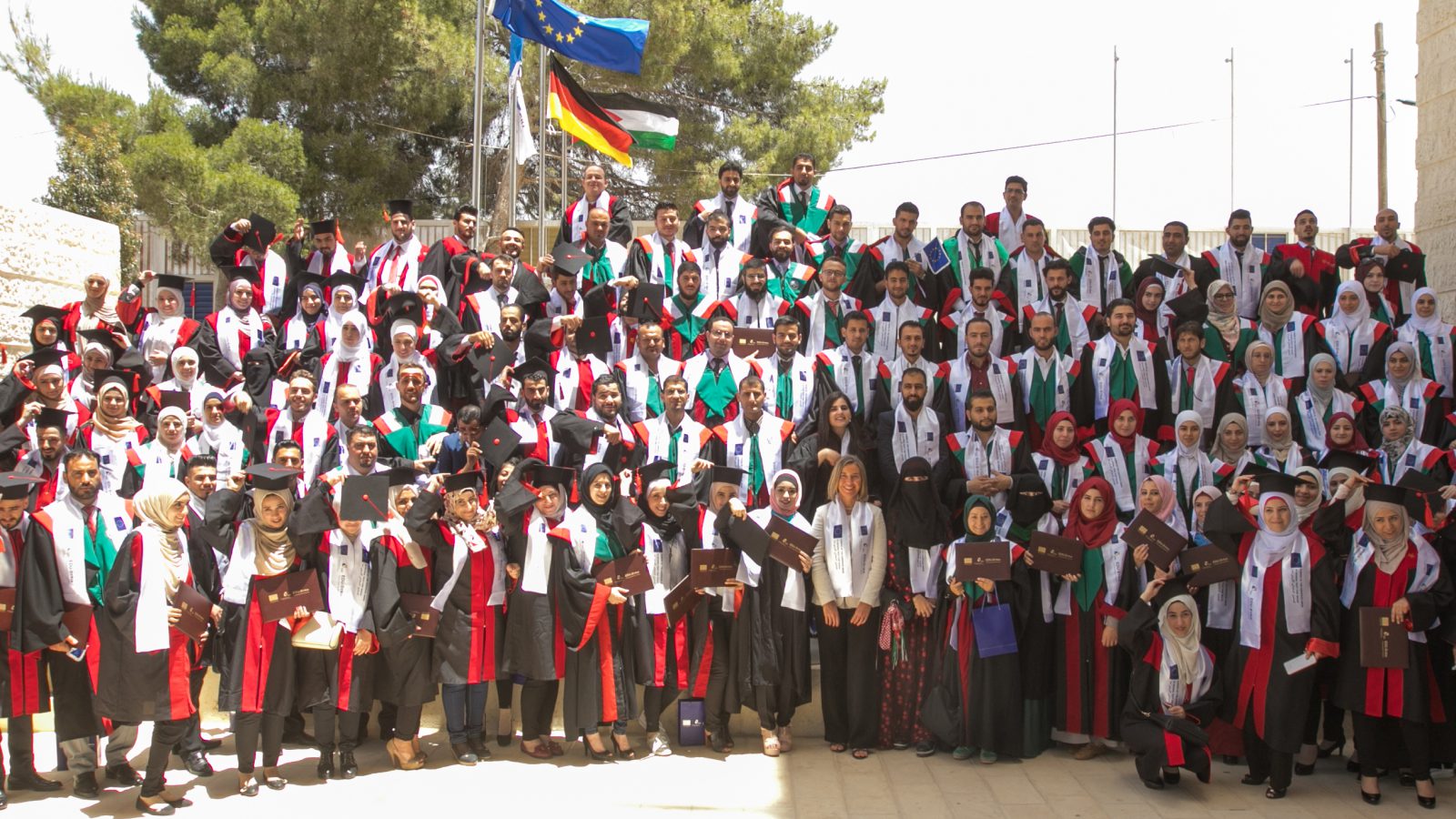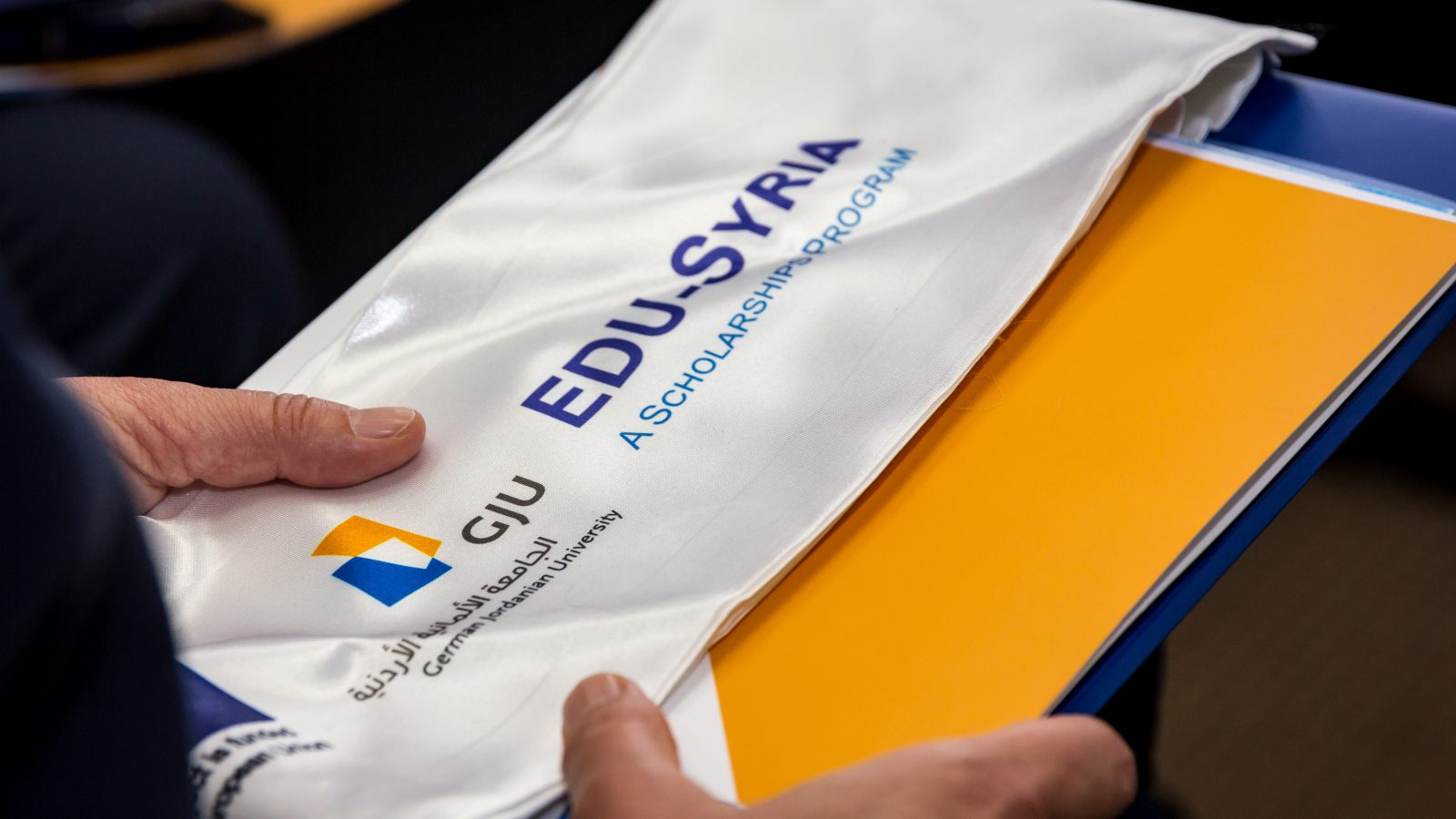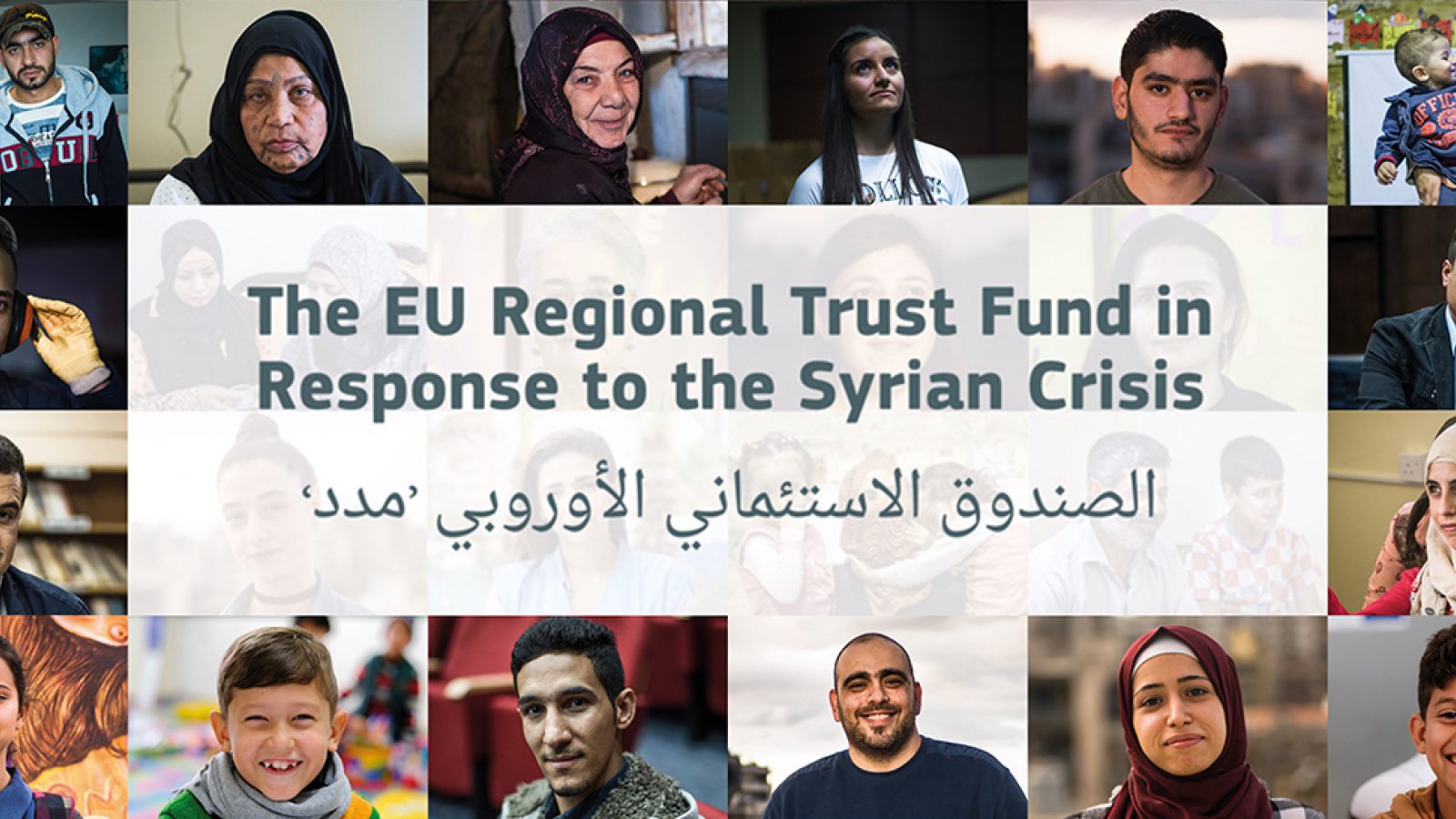Relentless activism: young Syrian stands for her community against COVID-19 challenges
After graduating from Zarqa University thanks to her EU-funded EDU-SYRIA I scholarship, Zaina Al-Masry was determined to continue doing what she loved the most: giving back to her community.
The 26-year-old Syrian refugee started volunteering with CARE International, as part of their Zarqa office, in addition to being a member of Al-Zarqa Community Committee. Located northeast of Amman, Zarqa has the second largest population after the capital, with over 500,000 inhabitants. For Zaina, who was welcomed by the Zarqa community when she arrived from Syria, being able to get involved in local initiatives is life changing. “With the Committee, we conduct social initiatives that help serve the community, fulfill people’s needs and provide the assistance they need,” the young woman explains, citing activities ranging from theatre, interactive sessions, awareness raising and lectures.
“Because we are part of the community, we are very aware of the difficulties and problems people face and we are also better able to answer them.” Along with her team members, Zaina tries to come up with solutions tailored to the problems community members raise during the sessions, while also helping to shed light on such topics among other groups. The committee plans initiatives from A to Z, starting with the brainstorming of ideas, mobilisation of volunteers and resources and implementation of the activities. But the COVID-19 crisis threw some sand into the wheels of this dynamic committee, forcing them to come up with innovative solutions to continue their work. “It was challenging to continue our tasks, as we did not have easy access to the target groups, but we continued trying, using phone calls, social media and other channels,” Zaina recounts.
The team was particularly eager to help the most vulnerable categories in a time of pandemic, including the elderly and isolated individuals. They planned an awareness-raising initiative within the local community in order to inform them about the measures needed to prevent the spread of the virus. The campaign included tips and advice from the World Health Organisation about social distancing, wearing face masks and gloves, regular handwashing and prohibiting handshaking. It also provided a constant update for citizens and a way for them to reach well-informed interlocutors with any question or inquiry related to the pandemic. “We overcame all challenges and managed to reach various age groups, especially older ones,” Zaina rejoices, beaming. “For me, what matters is the satisfaction I see in so many people who benefit from our initiatives!” The young graduate is determined to continue her community work, in spite of any challenge that comes her way. “I want to contribute to the development of the local community, because this is where I live and I want to improve it to the better.” Zaina benefited from the EDU Syria II scholarship funded by the European Union under the EU Regional Trust Fund in Response to the Syrian Crisis (EUTF Syria), the EU Madad Fund.
EDU-SYRIA
EDU-SYRIA is a host of projects that chronologically extended over the last five years and still going, 2015 and further. The projects are EU funded via MADAD in response to the Syrian crises. Hence, the primary beneficiaries are Syrian refugee and underprivileged Jordanian youths. The ultimate objective of the projects is to improve the livelihood of those beneficiaries by providing them with higher education opportunities through a cluster of scholarships that are granted every cohort of high school graduate since 2015.
EDU-SYRIA I was launched in late 2015 where a fund of 4 million Euros supported a total of 390 higher education accredited degree, master’s, bachelor’s, and vocational programs. Another EUTF grant was bequeathed, 11 million Euros, inaugurating EDU-SYRIA II, the second wave of the project, October 2016. The project was the largest in Jordan in terms of the number of the higher education degree scholarships that was awarded, specifically, 1000. The EU Regional Trust Fund in Response to the Syrian Crisis program presented a smaller endowment of 2.6 million Euros in January 2019 allowing for additional 200 higher education degree scholarships. EDU-SYRIA III was launched in January 2020 with a fund of 15 million Euros. The components/actions of the last wave were more diversified in nature and design where some aiming to pick up the young adults who dropped out or leaked out of school. The direct total of beneficiaries is 2245 Syrian refugees and underprivileged Jordanians.
EU Regional Trust Fund in Response to the Syrian Crisis
Since its establishment in December 2014, a significant share of the EU’s non-humanitarian aid for Syria’s neighbouring countries is provided through the EU Regional Trust Fund in Response to the Syrian Crisis, the EU ‘Madad’ Fund. The Trust Fund brings a more coherent and integrated EU aid response to the crisis and primarily addresses economic, educational, protection, social, and health needs of refugees from Syria in neighbouring countries such as Jordan, Lebanon, Turkey and Iraq, and supports overstretched local communities and their administrations.
Read more
EU Delegation to Jordan website
EU Regional Trust Fund in Response to the Syrian Crisis website


